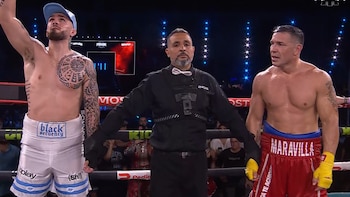
Artists, environmentalists, activists and divers who are part of the “Selvame del Tren” movement lamented the cancellation of the dialogue with President Andrés Manuel López Obrador to discuss the construction and environmental impact of section 5 of the Maya Train.
For this Monday, April 25, a meeting was scheduled to discuss the possible environmental risks to the Mayan jungle and aquifer due to the works of the López Obrador megaproject; however, on Sunday 24 the Presidency of the Republic reported that, due to the indisposition of several attendees, this dialogue was suspended.
One of the most prominent celebrities who reported that he would not attend the meeting (if it happened) was actor Eugenio Derbez, who commented that he was filming one of his projects, but assured that the other members of the group were going to go, according to an interview with journalist Azucena Uresti.

In response, the participants of the movement shared a communiqué in which they warned that they will continue to insist on a dialogue with the federal president and that the provisional suspension of the works on section 5 be maintained until the environmental impact studies are made.
“It is a pity that the President rejects the dialogue he offered us. This shows that it does not have the environmental impact studies required by law and that we are right in our concerns about the damage caused to the Mayan jungle and aquifer”, the letter reads.
According to Gemma Santana, an environmental activist who is part of the “Selvame del Tren” collective, commented that the list sent to the National Palace of participants who would attend the dialogue with AMLO included the names of: Azela Robonso, Jero Median, Ruben Albarrán, Roberto Rojo, Camila Jaber, Otto Von Bertrab, José Urbina, Bernadette Carrion and Rodrigo Medellin.
Following the cancellation of the meeting, the Presidency of the Republic invited the activists to visit the Quintana Roo region to speak with the villagers, indigenous communities and ejido members to confirm that they were consulted. And that cenotes, underground rivers and caverns will not be affected by section 5.

According to the government of Mexico, two types of consultation were held for the construction of the Maya Train: one to 1,078 indigenous communities from 118 municipalities in 5 states, and another open consultation in which more than 100,000 citizens in 84 municipalities participated.
It is worth mentioning that previously a judge from the state of Yucatan granted a provisional suspension for section 5 south of the Maya Train after a group of divers filed a demand for amparo for not having a manifestation of environmental impact, according to the association Defending the Right to a Healthy Environment (DMAS).
Section 5 Sur is run by Grupo México and the Spanish company Acciona. It runs from Playa del Carmen to Tulum, with a length of 603 km. It will have two stations (Tulum and Tulum Airport) and three stops (Xcaret, Puerto Aventuras and Akumal).
In total, the Mayan Train will have an investment of 200 billion pesos and covers a 1,554-kilometer stretch that will pass through Tabasco, Chiapas, Campeche, Yucatan and Quintana Roo.
KEEP READING:
Últimas Noticias
Debanhi Escobar: they secured the motel where she was found lifeless in a cistern
Members of the Specialized Prosecutor's Office in Nuevo León secured the Nueva Castilla Motel as part of the investigations into the case

The oldest person in the world died at the age of 119
Kane Tanaka lived in Japan. She was born six months earlier than George Orwell, the same year that the Wright brothers first flew, and Marie Curie became the first woman to win a Nobel Prize

Macabre find in CDMX: they left a body bagged and tied in a taxi
The body was left in the back seats of the car. It was covered with black bags and tied with industrial tape
The eagles of America will face Manchester City in a duel of legends. Here are the details
The top Mexican football champion will play a match with Pep Guardiola's squad in the Lone Star Cup

Why is it good to bring dogs out to know the world when they are puppies
A so-called protection against the spread of diseases threatens the integral development of dogs




